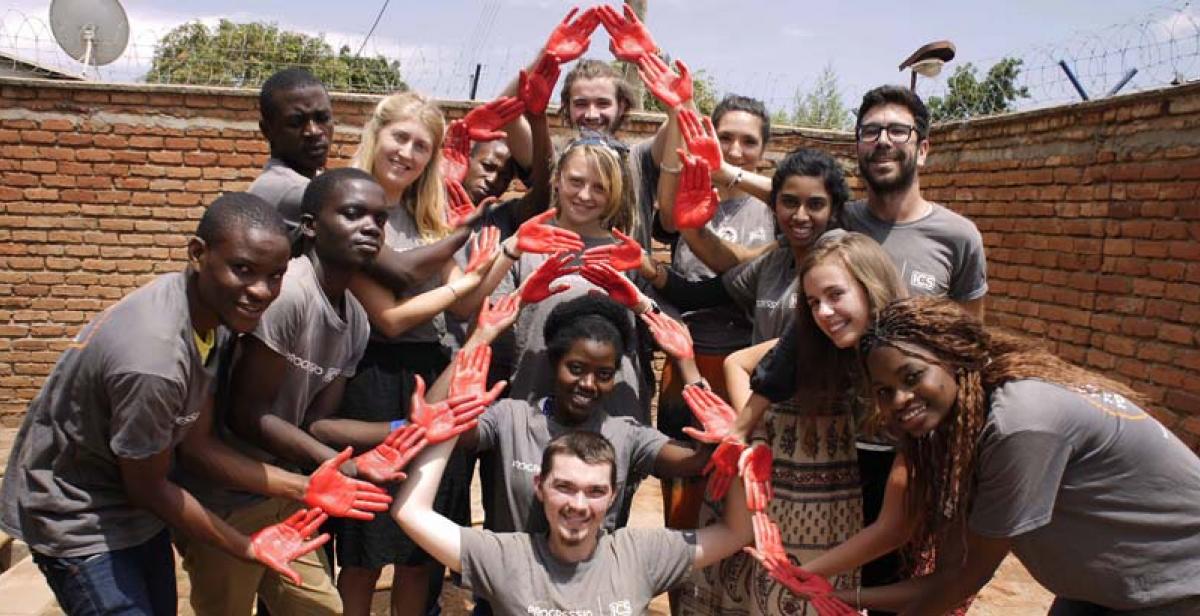One of the most frustrating things that ICS volunteers go through is that, despite all the effort we put into delivering our projects, we don’t necessarily get to see the impact of our work. I have been in Malawi for almost six months. I have worked with numerous youth groups, schools, and with the community in general delivering information about Sexual and Reproductive Health (SRH), knowing that I might not see the end result of my work.
SHR is a term used to gather a wide range of issues such as HIV-prevention, early marriages, gender-based violence, sexuality, family planning, etc. These are issues Malawians’ face every day. For example, the Malawian constitution criminalises homosexuality, so anyone whose sexual orientation varies from the norm (heterosexual relationships), is forced to live a life of fear, hiding from a potential fourteen-year sentence in prison. Regarding family planning, Mzuzu (the city where we are based) is quite lucky. This city has several hospitals and clinics all of which offer modern forms of contraception such as condoms, pills or implants. The youth in Mzuzu, however, are not accessing these services because there is still a lack of knowledge about where to get family planning, as well as great stigma attached to those who use contraceptives.
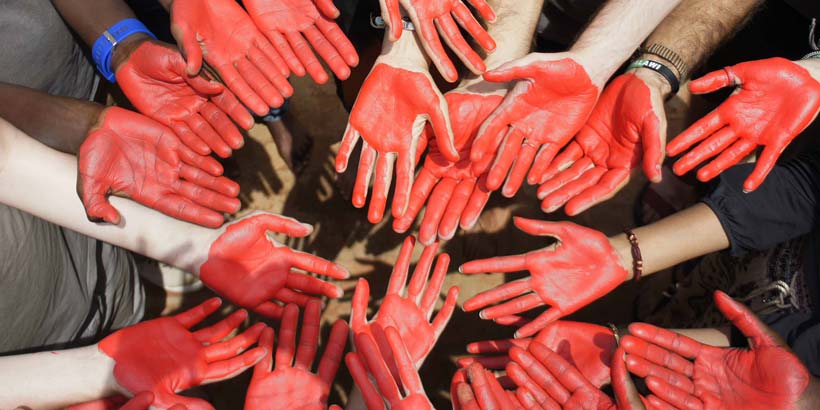
Today, I want to focus on the work we have done on HIV and AIDS and I want to dedicate these lines to my family from Team Chibavi (Cycle 1, July - September cycle). We put together, two massive events in our community where more than 200 youths got tested for HIV. Team Chibavi left in September and I stayed behind to host another cycle of volunteers and continue the work they started. As I said at the beginning of this blog, sometimes it’s difficult to see the impact of your work as a volunteer but, luckily enough, life surprised and allowed me to appreciate how much of an impact ICS volunteers can have. Let me tell you how this happened.
It was early October. I travelled to Nkhata Bay with my host family, a popular spot by the lake where Malawians go to relax. The place was packed. I was sitting under an umbrella, chatting with my Maya (my host sister) when a young looking fella approached me with a grin on his face. “Do you remember me?” “I don’t, sorry”, I said. “I’m Peterse, we met at the event you organised in Mzuzu last month.”
“Yes, of course, I remember you now”, I lied. “I am so grateful for what you did for me and my family”, continued Peterse. Now I was intrigued. “Yes? And what was that?”, I asked. “You encouraged me to get tested for HIV. I now know my HIV status and I know the importance of getting tested regularly”, he explained. My eyes brightened. “Please, sit down, Peterse, and tell me your story”.
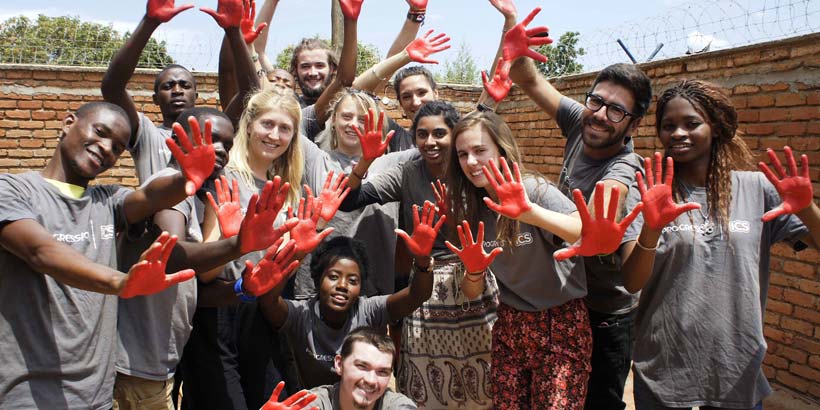
Peterse Nooldhin Maseko was born in Blantyre in 1987 and moved to Mzuzu when he was 18. His mother had a business at Mzuzu market where she sold second-hand clothes. When she died last April, Peterse took charge of the business. “I have heard about HIV and AIDS since I was eight, mostly through adverts on the radio. I know HIV is a killer in Malawi but there is still little information provided in schools”, said Peterse.
Peterse, like many Malawians, migrated to South Africa in search of a job. He had a girlfriend in Malawi and held a three-year long-distance relationship with her. “When I came back from South Africa, I had sex with her without a condom, although I didn’t know if she had had other sexual partners. I was worried,” he admitted.
“Then, I saw the poster you guys put up around Mzuzu, inviting people to get tested for HIV. I attended the event but, in all fairness, I didn’t think I would get tested. I was scared,” explained Peterse.
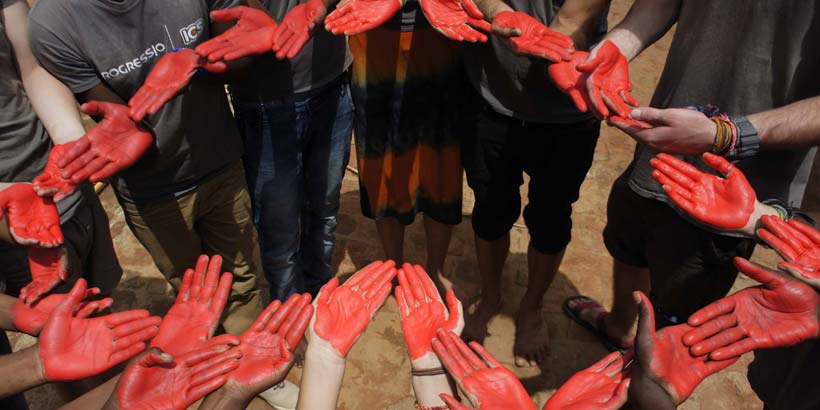
During that event, our team had booked health workers and counsellors who were qualified to undertake the testing. We used the local primary school classrooms as our testing rooms. Our team organised a talent show and sports day to attract the local youth. A big crowd gathered around the PA system. We took this opportunity to walk around and encourage everyone to get tested as we explained the importance of knowing your HIV status.
“You approached me with a big smile and started chatting to me. I didn’t want to go for testing but you tried hard and you not only convinced me but also my friends,” said Peterse. I could not believe my luck. It was almost surreal. There I was, two months later, chatting with a guy who personified the impact of the work of our team. I couldn’t be happier.
“The procedure of getting tested wasn’t as scary as I thought it was going to be. I entered the classroom by myself and sat down. A counsellor talked to me and explained that, if I was HIV positive, I would be able to access free drugs, which would help me to live a normal life. Then she advised me on where to get tested regularly and stressed the importance of using condoms when having sexual intercourse. After chatting for a while she pierced my finger and took a blood sample. After ten minutes I knew my status,” explained Peterse.
“After getting tested I felt free,” admitted Peterse. "Thanks to Progressio volunteers I now know my status and I know how to protect myself from HIV. I was so happy after I got tested that I ran home and told my sister. I literally grabbed her hand and dragged her to the event too. I convinced her to get tested too. She did. Now both of us know the places in Mzuzu where we can get HIV testing and counselling (HTC) and I know I must get tested every three months.”
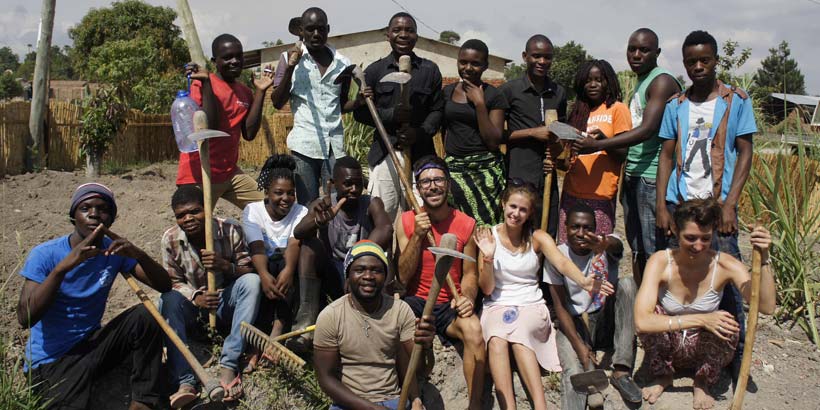
Since that day in Nkhata Bay, Peterse and I have kept in touch. He turned out to be my neighbour, so we spend quite a lot of time chatting and have got to know each other quite well. Currently, Peterse is a member of United Youth Group. We meet every Friday and are growing vegetables in a community garden to improve the diet of people living with HIV.
As World AIDS Day is upon us, I want to thank the work of all those ICS volunteers who are working to raise awareness about HIV and the importance of HTC. This is just the story of Peterse, whom I have had the pleasure to meet but I am sure there are many more Peterses out there whose lives have been changed thanks to the work of ICS volunteers. Big up guys, and keep up the good work!
Written by ICS Team Leader Carlos Velázquez


